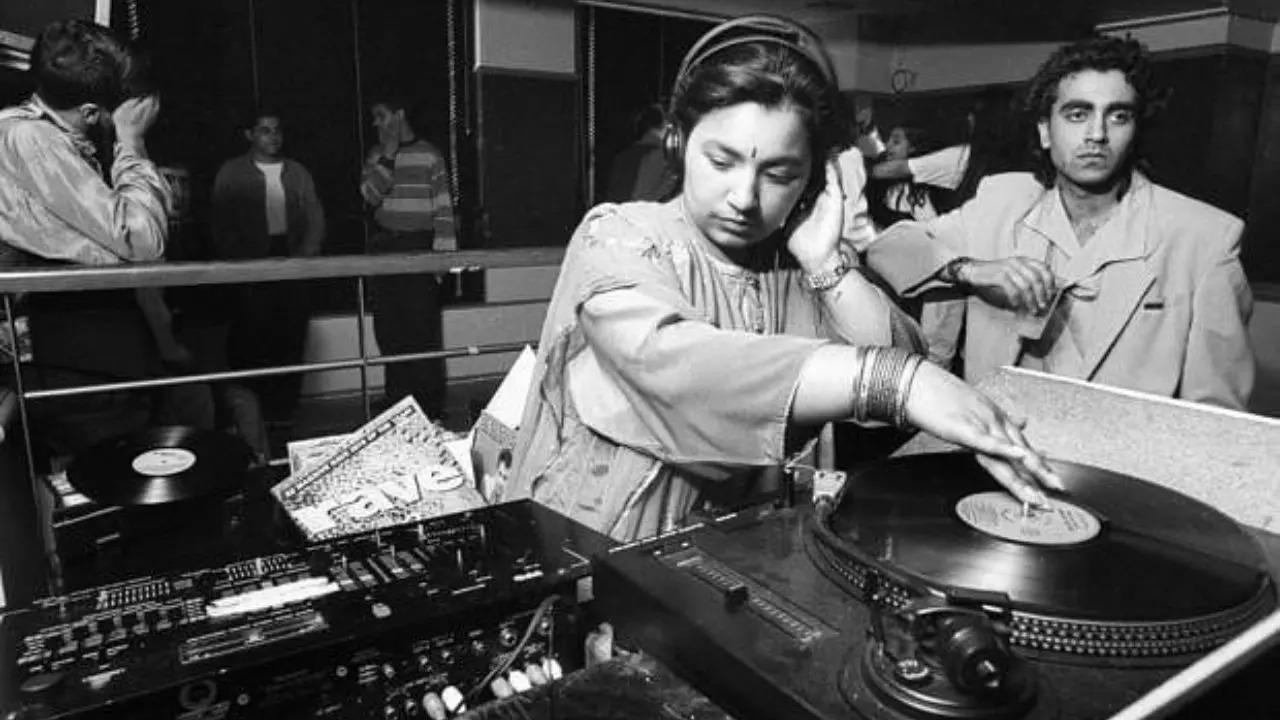DJ Radical Sista performs a ‘Day Timer’ at a Bradford nightclub. (Photo credit: Tim Smith)
One of the most fascinating contributions to the cultural scene of the United Kingdom (United Kingdom) by South Asian immigrants The trend was “Daytime clubs ” or “Daytime Raves,” which ushered in the era of what would become known as “Daytimers.” The South Asian parents had settled in a new country, but were eager to preserve their “culture.”For these first-generation immigrants from predominantly South Asian countries, IndiaIn Pakistan and Bangladesh, the idea of their British children going out partying on a Friday night was unacceptable. Their children were born and raised in the UK, and the parents were strict about their “cultural and social values”. While this strictness was partly to maintain discipline with their children, the UK in the 1980s and 1990s was also a time when racism was prevalent and “brown” people were often not allowed into nightclubs due to racially discriminatory entry policies.
Young people decided to take matters into their own hands and started an afternoon party culture. The era of the “Daytimers” began, with events organised during the day. Some even took place on school days, allowing teenagers to party without their parents being curious about their absence. Bradford in the UK was the most popular destination for “Daytimers”.
“Another factor was that many clubs were reluctant to host Asian events at night. Some were small gigs in sweaty club basements, while others were larger-scale: busloads of people from around the country headed to venues like London’s Leicester Square Empire, The Hummingbird in Birmingham and Maestro’s in Bradford,” writes Tara Joshi for Rolling Stone.
Partying in the afternoon and returning home later earned them the nickname “daytimers” and established themselves in the UK rave culture.
“From the late ’80s through the ’90s, now-defunct daytime raves (or ‘Daytimers’) were a staple of UK rave culture, playing bhangra, garage, and Bollywood and hip-hop mash-ups to a generation of British Asians. Some of the greatest stories in British clubbing history took place at these events, held in small UK towns and sleepy London suburbs,” wrote Kieran Yates for The Fader.
What made it different was that these parties were celebrated at dawn and families did not realize that their children were violating some cultural norm.
“Daytime events were a statement that you were there, but also that you were seeing others. In doing so, the events debunked the idea of sexless young Asian men working hard, dancing to Bollywood classics at weddings and keeping girls trapped in the kitchen,” Yates writes.
The Radical Sister DJ was one of the most famous DJs at Day Time Discos. Her real name is Rani Kaur and she used to play in clubs around Bradford for the “Daytimers”. In an interview with Shawna Healey for Asian Standard she said: “We were a bunch of girls who hung out together. We used to go, have fun and come home. We had a rule where we went together, stayed together and left together, and that’s what we did. It was a safe place where we could be ourselves… For Asian guys, not just women, it was a safe space where we could hang out and just have fun.”
While these “Daytime Discos” no longer exist and there is not much material available, Riz Ahmed’s 2016 film Daytimer offers insight into their life and significance.
Disclaimer:
The information contained in this post is for general information purposes only. We make no representations or warranties of any kind, express or implied, about the completeness, accuracy, reliability, suitability or availability with respect to the website or the information, products, services, or related graphics contained on the post for any purpose.
We respect the intellectual property rights of content creators. If you are the owner of any material featured on our website and have concerns about its use, please contact us. We are committed to addressing any copyright issues promptly and will remove any material within 2 days of receiving a request from the rightful owner.

